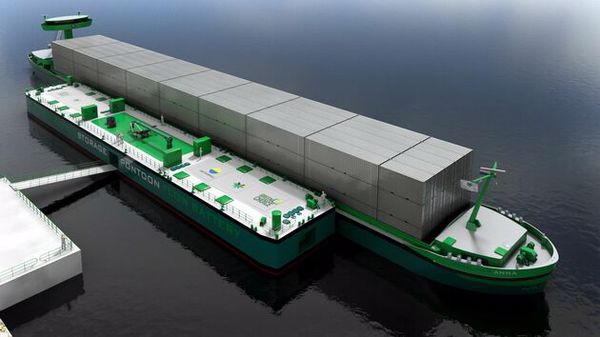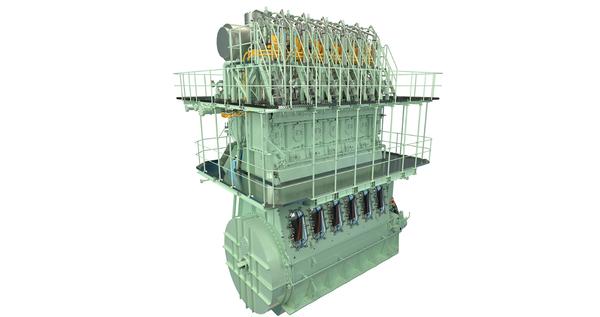PortLiner to build electrolyte bunkering station in Rotterdam
The Port of Rotterdam Authority and Dutch inland shipping operator PortLiner have inked a deal to develop a charging and storage pontoon for flow batteries in Hartelkanaal in Rotterdam.
 PHOTO: PortLiner’s concept for zero-emission shipping based on flow batteries. PortLiner
PHOTO: PortLiner’s concept for zero-emission shipping based on flow batteries. PortLiner
A flow battery is a type of rechargeable battery in which electrolyte flows through one or more electrochemical cells. Unlike conventional batteries where the reactants are stored in the cell, flow batteries store the liquid (electrolyte) in external tanks. The electrolyte is then charged with electricity generated from renewable energy sources such as wind or solar energy.
On board a vessel, the electricity extracted from the electrolyte can be used to propel the vessel or for auxiliary power. The discharged electrolyte is then exchanged for a charged electrolyte and the discharged electrolyte is recharged.
PortLiner will supply these flow batteries to electrically powered inland vessels from this electrolyte bunkering station.
This “concept for zero-emission shipping based on flow batteries” has been developed by PortLiner in collaboration with power companies Vattenfall and Greenchoice.
“Growing demand for electrically powered inland vessels” persuaded PortLiner to construct the electrolyte bunkering station in Rotterdam. The company has chosen Hartelkanaal as the site of the construction, which is set to begin in the fourth quarter of this year.
The electrolyte bunkering station will be supplied with electricity generated from wind energy at Greenchoice’s adjacent wind farm.
“Within the Dutch transport sector, inland shipping is responsible for 5 percent of carbon emissions,” the port authority says.
This electrolyte bunkering station is expected to curb carbon dioxide (CO2) emissions, and reduce nitrogen and particulate matter.
“By transitioning to electric power, the inland shipping industry is making an important contribution to more sustainable shipping,” the port authority adds.
The electrolyte bunkering station construction is expected to be completed in the first quarter of 2024.
By Tuhin Roy
Please get in touch with comments or additional info to news@engine.online






